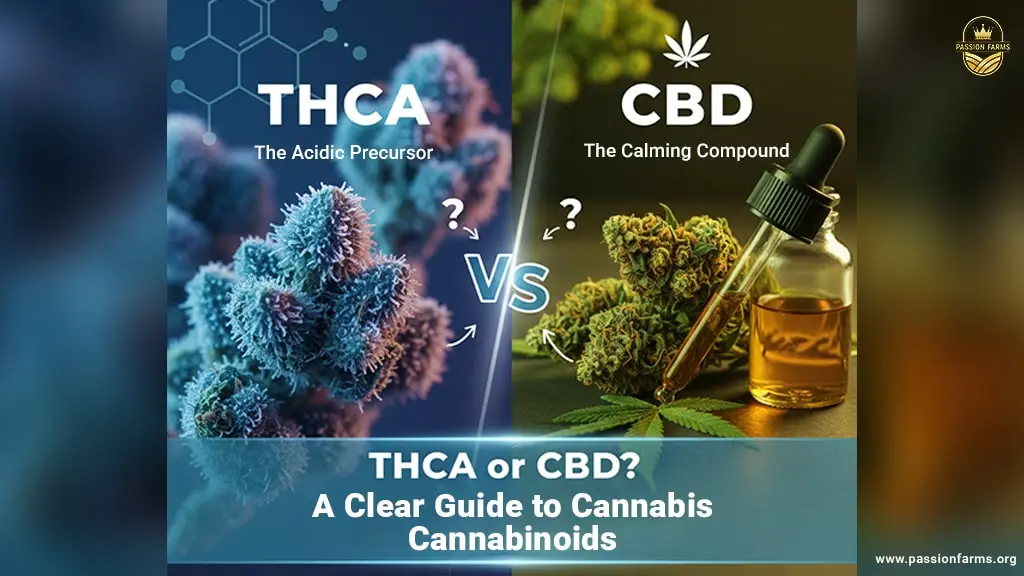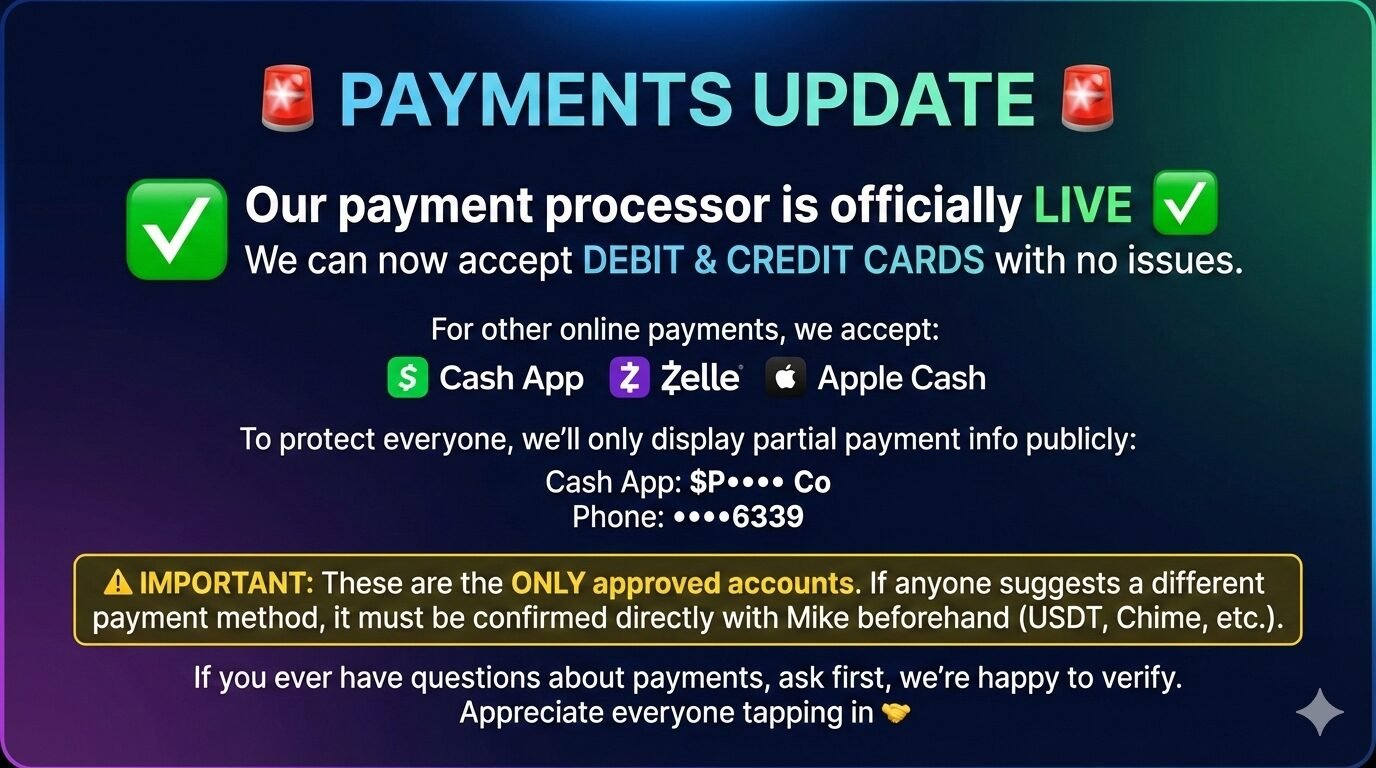At Passion Farms, we are dedicated to helping demystify cannabis compounds. In this piece, we will look specifically at Tetrahydrocannabinolic Acid (THCA) and Cannabidiol (CBD). Both THCA and CBD exist in the cannabis plant but they act differently in our bodies and have different effects and benefits. It is essential that you understand these differences, so that you can make more informed choices along your wellness journey.
What is THCA?
THCA is the raw form of Delta-9 THC (the intoxicating compound of cannabis) is nonpsychoactive. THCA is the natural form of THC that is present in unheated cannabis. THCA does not produce a “high” by itself. When THCA is heated, whether by smoking, vaping, or cooking with it, it goes through decarboxylation and becomes THC.
Like in its raw form, there is a lot of research into THCA, and it has demonstrated potential in:
- Anti-inflammatory effects: May help with ailments like arthritis
- Neuroprotective: May help stabilize brain health
- Anti-emetic: May help alleviate nausea and vomiting
- Antioxidant: Protects cells from damage.
What is CBD?
CBD is another well known cannabinoid that is most abundant in hemp. Unlike THCA/THC, CBD is completely non-psychoactive (meaning it will not give you a ‘high’). CBD interacts with your body’s endocannabinoid system (ECS) in a more complex manner than THCA and becomes part of the balance and homeostasis process.
CBD is recognized for its potential benefits like the following:
- Stress and anxiety relief refers to, and provides a calming effect.
- Pain relief may reduce various types of pain and inflammation.
- Sleep aid will help with sleep.
- Neuroprotective supports brain health.
Key Differences: THCA vs. CBD
I think the important differences between THCA and CBD are where they differ in relation to psychoactive compounds and how they interact with the body:
- Psychoactive substance: THCA is raw and non-psychoactive but when it is heated it becomes psychoactive-THC. CBD is always non-psychoactive.
- Interaction with the ECS: Heated THCA (THC) will bond directly to CB1 receptors. CBD affects the ECS in a more complex process and is known to promote a state of homeostasis or balance in the body without the intoxication feeling associated with THC.
- Legal status: Legally THCA is confusing because of its interaction with THC. Hemp-derived CBD is federally legal as long as it is under 0.3% delta-9 THC.
| Feature | THCA | CBD |
| Psychoactivity | Non-psychoactive (raw); Psychoactive (heated) | Non-psychoactive (always) |
| Primary Interaction | Converts to THC, binds to CB1 | Indirectly modulates ECS |
| Legal Status | Varies (due to THC conversion) | Federally legal (hemp-derived <0.3% THC) |
Consumption Methods
How are you taking these cannabinoids? It matters quite a bit:
How to Take THCA:
- Smoking/Vaping THCA flower: Essentially turns into THC which can give fast psychoactive effects.
- Raw Juicing/Smoothies: You get to consume THCA in its non-psychoactive form while accessing potential therapeutic benefits.
How to Take CBD:
- Oils/Tinctures: Taken sublingually, relatively rapid effects.
- Edibles: Slower onset, but longer-lasting effects.
- Topicals: To produce localized relief for skin or muscle issues.
Finding What’s Right for You
Knowing what THCA and CBD are will assist you in navigating the cannabinoid space. If you are looking for the raw potential health benefits of THCA, the balanced wellness support of CBD, or the psychoactive experience from heated THCA (THC), Passion Farms is equipped to help you. We carry quality tested products to fit your needs.
Browse our different cannabis products for more details. Our team is happy to help you make the best choice for your lifestyle. If you’re looking for further insights, check out our other blogs. Ready to take the crown of cannabis knowledge!? Book online, or reach out to us today and discover the Passion Farms difference.




